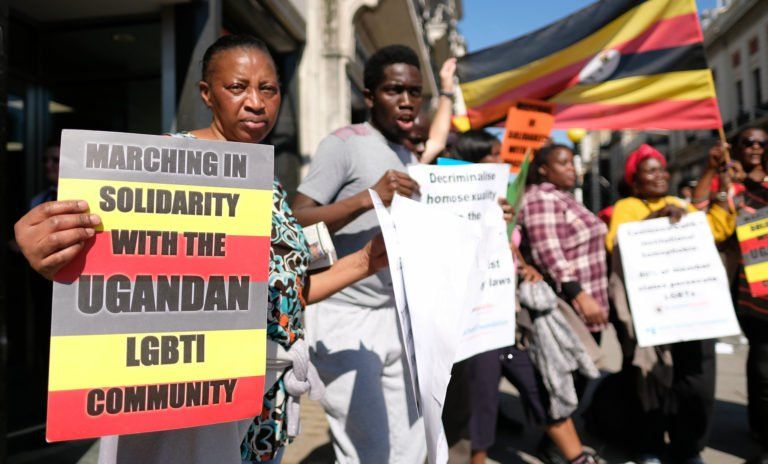World Bank resumes funding to Uganda after a nearly two-year suspension.
Shift in project focus to social protection, education, and refugee support.
Uganda reportedly adjusted policy implementations behind closed doors.
No formal repeal of the anti-LGBT law, but enforcement appears softened.
Financial support channels now include stricter accountability mechanisms.
World Bank Restores Uganda Aid Amid Quiet Political Concessions
A Quick Recap of This Story
A Quiet Return to the Table
After a long diplomatic standoff, the World Bank has restored its funding relationship with Uganda—this time under new terms and tightened scrutiny. The initial suspension, triggered by Uganda's enactment of the Anti-Homosexuality Act (AHA) in 2023, sparked global condemnation due to its severe penalties, including life imprisonment and the death sentence under specific provisions. But nearly two years later, in a move that has raised eyebrows across the international development community, funding has quietly resumed.
Although Uganda has not publicly repealed or amended the controversial law, it appears that behind-the-scenes adjustments were made—subtle changes in implementation practices, procedural rewrites, and perhaps even internal directives not to enforce certain punitive clauses. These political accommodations, though unofficial, were reportedly enough to convince the World Bank that mitigation efforts now meet its operational standards.
Funding Rechanneled to Critical Sectors
The World Bank’s return to Uganda comes with a recalibrated strategy. Instead of direct budgetary support or large-scale infrastructure investments that typically dominate lending portfolios in the region, the new financing package targets three key humanitarian pillars: social protection, education, and support for displaced populations.
This pivot signals an attempt by the World Bank to avoid controversy while still fulfilling its development mandate in Uganda. These sectors were chosen not just for their developmental urgency but also for their relative insulation from the socio-political debates surrounding the AHA.
Social welfare programs, classroom expansions, and refugee support are all designed with layered accountability frameworks, ensuring that international funds reach their intended recipients with minimal political interference.
Behind Closed Doors: A Tactical Compromise
While official statements remain vague, insiders suggest that Uganda’s government made unpublicized concessions to allow the World Bank’s return. This could include quiet directives to law enforcement to downscale prosecutions under the AHA or modifying project protocols to create safe work environments for all workers regardless of sexual orientation.

Uganda, heavily reliant on foreign capital for its infrastructure and development agenda, had felt the economic pinch of the suspended funding. The restoration of World Bank aid was not just about cash flow—it was a signal to other donors and international institutions that Uganda was once again a viable partner. The compromise, it seems, was reached through diplomacy rather than public legislation.
Economic Pressure and Political Optics
The economic fallout from the suspension was significant. Delays in infrastructure projects, stalled health programs, and cuts to educational grants all contributed to growing dissatisfaction within Uganda’s development agencies. Meanwhile, international donors viewed Uganda as a test case—balancing national sovereignty with the global human rights agenda.
Uganda’s leadership now faces a dual challenge: placating conservative domestic audiences that largely supported the AHA while signaling to the global community that it remains open to cooperation and progress. By allowing enforcement of the law to fade into administrative obscurity rather than formally repealing it, the government walks a thin line between political optics and economic necessity.
What Comes Next: Monitoring and Global Eyes
The resumption of World Bank financing does not mean business as usual. Each of the approved projects will operate under new oversight frameworks, with transparency and compliance benchmarks built into disbursement protocols. This approach reflects a broader shift in how international lenders engage with nations facing rights-based scrutiny.
Furthermore, other donors—many of whom followed the World Bank’s lead in suspending or freezing aid—may use this decision as justification to re-engage with Uganda under similar preconditions. However, human rights organizations remain critical, arguing that resuming aid without a formal repeal of the AHA emboldens repressive laws elsewhere on the continent.
Conclusion: A Deal in the Shadows
Uganda’s reinstatement into the World Bank’s funding portfolio is emblematic of the complex intersection between global finance and local politics. While the anti-LGBT law remains technically intact, political realities have shaped a compromise that allows both sides to save face. Uganda reopens critical funding lines, and the World Bank continues its mission—albeit with caution and conditions.
But this episode leaves a lingering question: can silent diplomacy ever replace legislative accountability when fundamental rights are at stake? For now, development resumes, but the debate is far from over.

0 comments
Be the first one to comment, but before that...
Here are some best practices for writing comments: